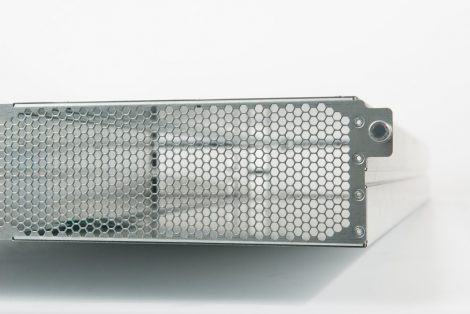Cumulus Gets Behind LinkedIn’s Open Data Center Hardware PushCumulus Gets Behind LinkedIn’s Open Data Center Hardware Push
Open19’s membership shaping up to be similar to Open Compute Project’s

Cumulus Networks, one of the top companies pulling against the tightly integrated hardware-software bundles that have been the bread and butter of traditional data center network vendors like Cisco, has added its name to the list of companies supporting Open19, the open data center hardware initiative started by people running LinkedIn’s data center strategy.
Open19 is being pitched as a more accessible alternative to the Open Compute Project, the open data center community Facebook launched six years ago. While OCP isn’t specifically mentioned in Open19’s messaging, the problems LinkedIn’s initiative aims to address are the ones companies frequently cite in connection with OCP.
Announced only last year, Open19 has already gotten a number of major vendors in the data center ecosystem to sign on as members, and their list includes many of the same brands you’ll find on OCP’s member page, such as Hewlett Packard Enterprise, Quanta, Mellanox, and Schneider Electric. Cumulus has been deeply involved in OCP for years, and its Linux-based network OS supports Facebook’s Wedge data center switches, open sourced through the project.
Wedge and LinkedIn’s Pigeon switch are some of the biggest examples of the tectonic shift that in recent years has been happening in the market for data center network gear, dominated traditionally by the likes of Cisco, Juniper, and Dell. As is the case with servers, hyper-scale data center operators like the two social networks want hardware that’s custom-designed to fit their needs and can be used with software of their choosing – usually written in-house – instead of software dictated by the vendors.
See also: Meet Microsoft, the New Face of Open Source Data Center Hardware
Companies selling so-called white-box switches have been quickly gaining market share in the data center space. Their shipments grew about 30 percent in 2015, according to a report by Gartner from last year, the most recent data available from the market research firm.
This disaggregation of software and hardware in data center networks has made companies like Cumulus possible. Cumulus doesn’t sell switches. Instead, it sells a software stack companies can use to operate low-cost white-box switches in their data centers, combining its network OS with partner software, such as VMware NSX or Nokia’s Nuage Networks SDN.
See also: Vendors Take Facebook's Data Center Switches to Market
By joining Open19 and announcing support for the community’s hardware standard, Cumulus adds another pool of companies it can potentially sell to in the future. LinkedIn is currently Open19’s only end-user member, while OCP lists the likes of AT&T, Verizon, Goldman Sachs, and Bank of America, among others.
A common complaint about OCP, however, is that it’s really difficult to source OCP gear for companies that don’t operate data centers on the scale of Facebook or Microsoft (another major member). Most OCP suppliers are too busy chasing large orders from the hyper-scale players and aren’t too interested in selling into smaller enterprise data centers.
Open19 claims its designs use components that are “easier to source than other custom open data center solutions,” according to the Cumulus announcement. One of the ways the initiative is making that happen is by standardizing on 19-inch server motherboards, which is the traditional motherboard width, different from Facebook’s 21-inch motherboards that are the original OCP standard.
Numerous OCP vendors, however, have adapted OCP motherboards to 19-inch servers and racks, making width less of an issue it once was.
Whether LinkedIn itself will continue using the Open19 standard in the future is an open question. Microsoft, its new parent company, is a major OCP supporter, and 90 percent of the servers it buys today are OCP-compliant. It’s unclear whether it will push LinkedIn to standardize on OCP in the future too, but it’s a possibility.
Kushagra Vaid, Microsoft’s general manager for Azure Cloud Hardware Infrastructure, told us in an interview earlier this month that it was too early to tell what the giant will do about LinkedIn’s data centers. “We haven’t really started talking about it,” he said. “We’re going on two clouds for now.”
At the very least, Vaid is not against LinkedIn’s standard. “There are some good things in Open19,” he said.
Learn about Microsoft’s pioneering approach to data center hardware design directly from the man leading the charge next month at Data Center World, where Kushagra Vaid, Microsoft’s general manager for Azure Cloud Hardware Infrastructure, will be giving a keynote titled Open Source Hardware Development at Cloud Speed.
About the Author
You May Also Like







